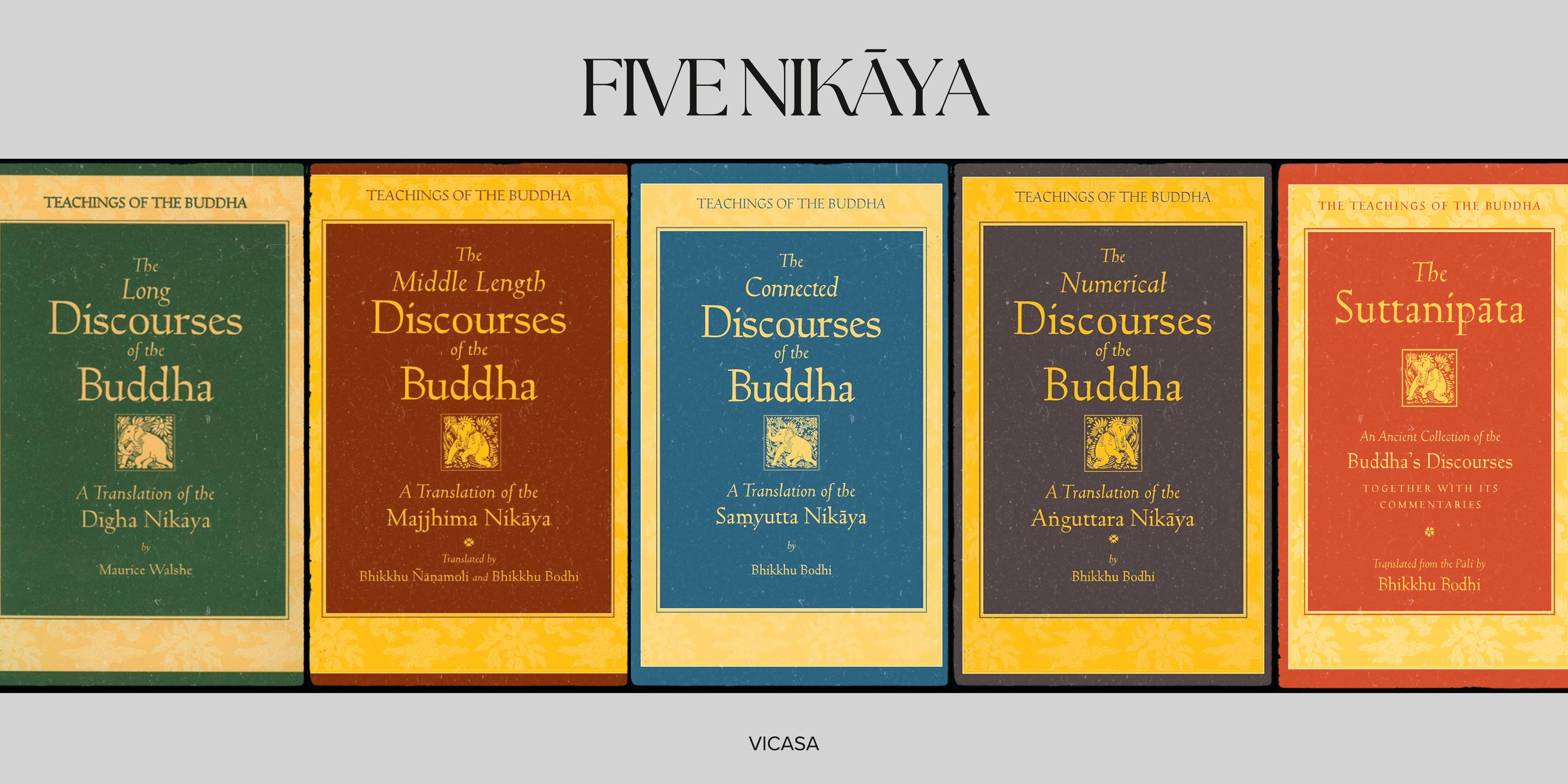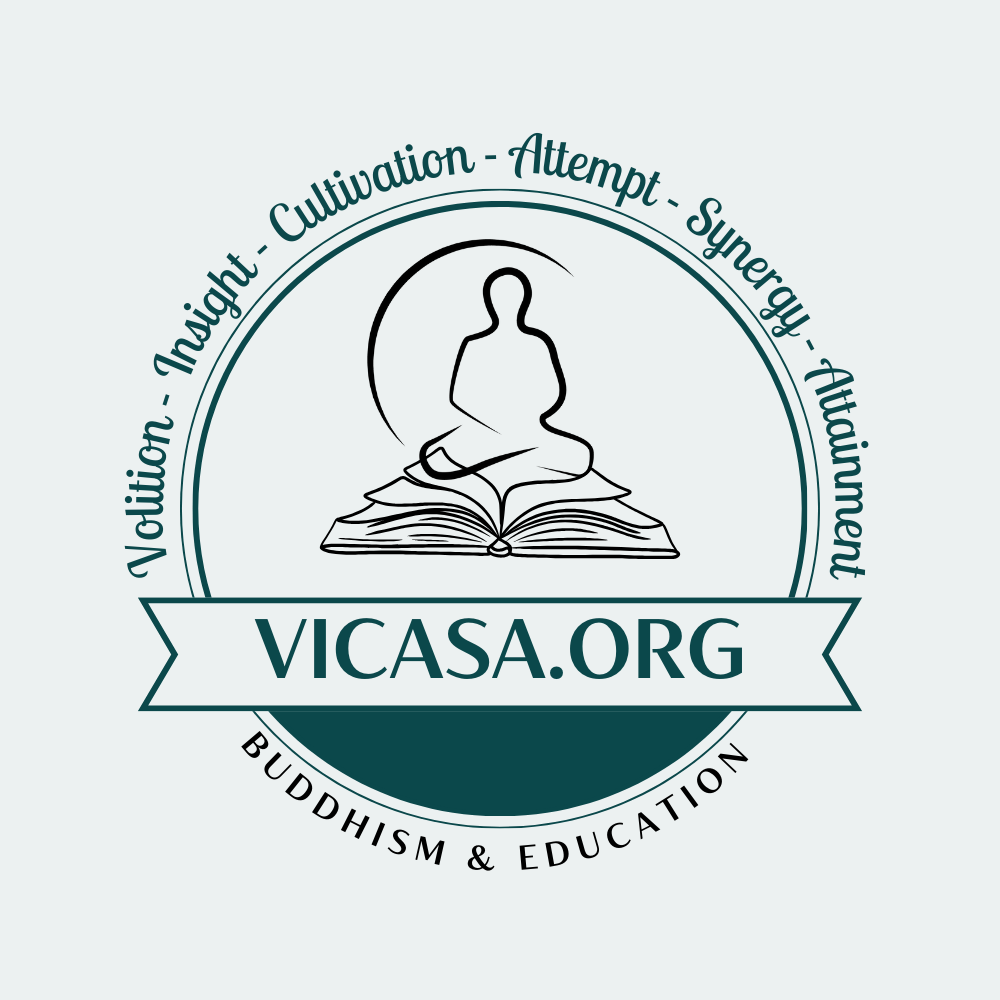In the book Dictionarium Anamitico–Latinum (Annam-Latin dictionary), the author, Father J. S. Theurel used to assert the estimation that the Vietnamese language commenced from traditional Chinese [1]. Consequently, most of the vocabulary, phraseology, and Buddhist language used in Vietnamese are influenced by traditional Chinese. As Chinese conveys a concise expression with dainty and profound terms. Vietnamese who don’t understand Chinese-originated words might struggle to fully understand transmitted content. Particularly, the Buddhist language in Tipitaka, converted from Pali into Vietnamese by some Venerables, encompasses countless Sino-Vietnamese vocabulary. Consequently, to discern suttas by mother tongue, Vietnamese disciples need to acquire Buddhist theory classes or gain in-depth Buddhist knowledge to fathom the Buddha’s thorough teachings.

Referring to Buddhist study alludes to the momentousness of foreign language comprehension, which reinforces the academic world to acquire and cultivate knowledge. According to the Theravada, they preserved all Tipitaka presently in Pali and mostly rendered into English. Nevertheless, the number of Pali eloquent Buddhists in Vietnam and worldwide is a sprinkling. Meanwhile, people use English as a world language and suttas. Accordingly, Buddhist followers should enrich this foreign language in the era of global integration. To efficiently use English to discriminate between languages when inquiring about the Dhamma and communicating with international Buddhist companions. That contributes to disseminating and conserving Buddhist values to humankind. Subsequently, “English – the language which helps Buddhism go further and integrate more extremely” could endure longer by discovering a standard voice in the modern world.

People who conquered English successfully demonstrate viewpoint that “English is complicated, even Vietnamese is more challenged” due to Vietnamese being affected by the traditional Chinese and among the most challenging languages in the world. As English has become the most widespread global language its uncomplicated characteristics more than Vietnamese. Conversant English learners will prefer to read the English-translated scripture directly. It is effortless to assimilate the doctrine due to appropriate context and scrupulous grammar that presents completeness in every sentence. Therefore, learners have the ability to avoid reading by the Vietnamese version with numerous original Chinese words leading to aggravation to comprehend.
Perceiving the benefits and strengths of English will help learners be more passionate and persistent:
The language with numerous ways to express [2]:
People who speak English as their second language observe that one object has many methods to indicate owing to the diversity of English vocabulary. According to the Merriam-Webster dictionary statistics, English has approximately a million words [3] and is increasing yearly.
The flexibility of English
Adaptability becomes one of the most valuable treasures of English. Thereby, English does not discriminate which enables you to utilize it in your own ways. Some countries, such as Singapore, adopted this notion and invented an entirely new English named “Singlish,” which absorbs many aspects of other languages, including Chinese and Malaysian language. [2]

The coherent and logical features of English
Those proficient in English concede that the grammar and definition of this language is systematic. While a word can be interpreted in Vietnamese into many different explanations, English words in each given situation can only bear a unique meaning. Furthermore, the English grammatical structure system lives as highly academic and logical. Each form has a close association and creates a comprehensive and cohesive whole. Due to coherence and fluidity, learners can use multiple sentence forms to articulate the same idea. That makes English conversation both understandable and adjustable. Thus, learning English will become effortless if you grasp the primary principles.
English simplicity compared to other languages [4]
The hassle of all languages equal for those not skilled in foreign languages. Regardless, English has more uncomplication contemplating on the correlation between languages worldwide. English manipulates the standard Latin alphabet without tones like Vietnamese, Chinese, etc. Writing and remembering English vocabulary come across as more unchallenging than Japanese, Korean, or Chinese pictograms. Unless someone already has “previous life seeds” with hieroglyphs, he finds it easier to learn Latin English. English grammar also has few particles, essentially the metamorphosis between word types (nouns, verbs, adjectives). In addition, English has a highly logical feature, helping learners to deduce structures themselves once they have grasped the basic knowledge.

Generally, after orienting the Dhamma learning path, we contemplate specific goals and constantly attain and experience diligent foreign language learning while apprehending an obvious English attainment process. Consequently, learning English will become more accessible and attractive than ever. In particular, English delivers a powerful weapon for Buddhist disciples on the path to escape suffering because foreign languages engages in tools to help us cultivate practical theory and praxis.
References
[1] Joseph Simon Theurel, 1829-1868, French, Bishop of Hanoi Diocese 1859-1868. Ke So Church (belonging to Hanoi Diocese) is located in Ha Nam, called the “Basilica”. [Joseph Simon Theurel, 1829-1868, người Pháp, Giám mục Giáo phận Hà Nội 1859-1868. Nhà thờ Kẻ Sở (thuộc Giáo phận Hà Nội) toạ lạc tại Hà Nam, được gọi là “Vương cung Thánh đường”.]
[2] Tom (n.d.). 9 reasons English is the most popular language. (9 lý do tiếng Anh là ngôn ngữ phổ biến nhất.) https://www.ef.com.vn/blog/language/9-ly-do-tieng-anh-la-ngon-ngu-pho-bien-nhat-the-gioi/
[3] How many words are there in English?. (n.d.). https://www.merriam-webster.com/help/faq-how-many-english-words
[4] Phuong Quynh (2021). The world’s top most difficult languages to learn: English is in the effortless group, but Vietnamese? (Top ngôn ngữ khó học nhất thế giới: Tiếng Anh thuộc nhóm dễ, còn Tiếng Việt?) https://kenh14.vn/top-ngon-ngu-kho-hoc-nhat-the-gioi-tieng-anh-thuoc-nhom-de-con-tieng-viet-20210320125618935.chn
Sayalay Vijjāñāṇī (Tue Minh)
